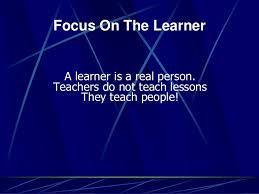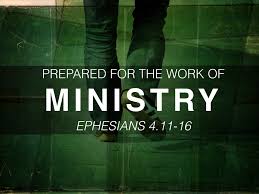Christian Teaching Ministry – my personal philosophy
Role of the Learner

Tao Te Ching — ‘When the student is ready the teacher will appear. When the student is truly ready… The teacher will Disappear.’
Normally, I don’t post Buddist quotes, but this speaks to me to me of ministry moments and function:

Holy Spirit prepares a student in awakening a hunger in their heart for a qualified teacher to bring them truth. When the truly called and anointed ministry gift has done their job well, they quietly walk on with Jesus, led to their next assignment, knowing in their heart that the student has been trained, equipped and empowered so well, that they are no longer needed. Reminds me of construction, when we build something well, we walk away and go build something else, knowing the building no longer needs us to stand strong against the storms of life.

How are we to know when a ‘teachable moment’ occurs in the lives of those we are called to reach? This can occur for people in different ways, and unless Holy Spirit shows us the state of their heart, we quietly model a spirit-led life-style and preach the word in season and out of season, and amazing things happen. Times when we think people are totally uninterested, can be miracles in motion, when hearts open supernaturally, and God shows up in power. I’ve already used your quote: ‘You can lead a horse to water, but you can’t make him drink – but you can put salt in his oats.’ Sometimes, our sacrificial live of love walked out in the power of the Spirit, is the salt people need to get in touch with their authentic thirst for living waters, found only in Jesus.

In this class we were instructed in detail as to how learners learn, and various methods of teaching to help them in the learning process.
I like this Learners Model:

We looked at Cognitive – knowing – intellectual or head knowledge
Affective – Feeling – Heart
Behavioral – Doing – Hands
Moral- Owning- Honor
Yes, I liked the five ‘R’ levels of learning, and understand Bloom’s taxonomy but it is the ‘Take-aways’ that I actually am taking away from this course. There is one that provokes my prayer life.
It states: When disciples begin to own for themselves the biblical, Kingdom values that provide the “why” behind the actions, those values will guide them daily both consciously and unconsciously.
We then looked at how when more senses are involved in the learning process, the retention level goes up quickly.
Now let’s look at the role of the teacher in the learning process.
Role of the Teacher

Rather than reiterate course notes, and since this is my personal philosophy explained, let share some thoughts about my philosophy of Christian teaching:
1.The teacher must be a person of prayer. John 3:27 (AKJV) 27 John answered and said, A man can receive nothing, except it be given him from heaven.
 How well I have learned over the years, that inspiration trumps perspiration. God can breath on a simple teaching, and change hearts and lives wonderfully, if we as ministers ‘smell like smoke’, having laid our lives down on the altar of prayer and emerged from the fresh fire of His presence.
How well I have learned over the years, that inspiration trumps perspiration. God can breath on a simple teaching, and change hearts and lives wonderfully, if we as ministers ‘smell like smoke’, having laid our lives down on the altar of prayer and emerged from the fresh fire of His presence. 
2. The teacher must know, exemplify and be living the truth they wish to impart. Transparent, authentically pure lives and holy conduct make the teaching more powerful. Character must be greater than charisma. Like when a youth said to me: ‘What’s wrong with cussing, everybody does it.’ Quietly I replied, ‘I don’t’. Clearly the strength of my reply gave him something to think about. 
3. Ministry is a four letter word: WORK. There is no substitute for adequate study and preparation in not only the word, but also with teaching aids, props, hand-outs, power-points, practice skits, worship practice, that all come together by the grace of God at the time of ministry like a well oiled machine. People may not fully understand how much work and preparation time went into a well planned and ordered service, but when it is properly executed, they get it, and they grow and are transformed.
 4. The teacher must be a servant leader. In the earlier stages of discipleship, as a parent would with a small child, we are large and in charge, until the student can begin to make good decisions for themselves, but in long run, we are working ourselves out of a job, in that though we hope we will always be friends with our protégé’s, we are not in the least threatened if they should go on and do greater exploits in the kingdom than we have ever accomplished. We long to impart such grace and life lessons, that they no longer need us, and are fully equipped to walk with Jesus apart from us.
4. The teacher must be a servant leader. In the earlier stages of discipleship, as a parent would with a small child, we are large and in charge, until the student can begin to make good decisions for themselves, but in long run, we are working ourselves out of a job, in that though we hope we will always be friends with our protégé’s, we are not in the least threatened if they should go on and do greater exploits in the kingdom than we have ever accomplished. We long to impart such grace and life lessons, that they no longer need us, and are fully equipped to walk with Jesus apart from us.
 5. The teacher MUST demonstrate the power of the Holy Spirit in their lives. They must walk in the gifts of Holy Spirit, and demonstrate them, that the student be both taught, and shown how to walk with God. As Holy Spirit manifests, there should be enough relationship with those we are called to disciple, that we can explain promptings, inner leadings, and the various ways of the Spirit that the student is encouraged to seek to be used in the same ways.
5. The teacher MUST demonstrate the power of the Holy Spirit in their lives. They must walk in the gifts of Holy Spirit, and demonstrate them, that the student be both taught, and shown how to walk with God. As Holy Spirit manifests, there should be enough relationship with those we are called to disciple, that we can explain promptings, inner leadings, and the various ways of the Spirit that the student is encouraged to seek to be used in the same ways.
My Personal Philosophy on the use of Curriculum:
Curriculum  Bottom Line – they work, and get the job done, if these other five attributes of the teacher are in place. There are some incredibly gifted ministry teams in the kingdom of God that have produced some exciting curriculum and as I meditate upon the job description of five-fold ministry gifts, in Eph 4: 11 And he gave some, apostles; and some, prophets; and some, evangelists; and some, pastors and teachers; 12 for the perfecting of the saints, for the work of the ministry, for the edifying of the body of Christ:
Bottom Line – they work, and get the job done, if these other five attributes of the teacher are in place. There are some incredibly gifted ministry teams in the kingdom of God that have produced some exciting curriculum and as I meditate upon the job description of five-fold ministry gifts, in Eph 4: 11 And he gave some, apostles; and some, prophets; and some, evangelists; and some, pastors and teachers; 12 for the perfecting of the saints, for the work of the ministry, for the edifying of the body of Christ:
It seems clear to me, that authentic ministry gifts produce curriculum that help equip the Body for the work of the ministry, perfecting them and developing them in the character of Christ, that the body of Christ be edified. As we prayerfully seek the Lord as to which curriculum to select, we can use the curriculum evaluation work-sheets in our research, to discover which might best meet the needs of the people we are called to serve.
The word edify means: to instruct or improve (someone) morally or intellectually. But I like the old English definition of this word:
Middle English: from Old French edifier, from Latin aedificare ‘build,’ from aedis ‘dwelling’ + facere‘make’ (compare with edifice). The word originally meant ‘construct a building,’ also ‘strengthen,’ hence to “build up” morally or spiritually
Here we see the root word ‘edifice’ to build, from the thought to ‘construct a building’.
Jesus is building a kingdom, here in the earth, His church:
And I say also unto thee, That thou art Peter, and upon this rock I will build my church; and the gates of hell shall not prevail against it.
Ministry gifts can produce solid, Biblical curriculum, that further the depth and reach of their ministries.
Obviously, the selection and application of these should never become a dead, lifeless legalistic process. Instructors must be free to obey Holy Spirit, and allow Him to change a particular lesson or lesson plan to meet the needs of the people. We are called to reach and teach people, not curriculum.

In speaking to various successful ministers who use or who have developed curriculum, they treat curriculum as just another tool in the tool box. They have their place, but are no substitute for the creativity of Holy Spirit in a ministry session or in the preparation for one. Specific items in a lesson can be added or subtracted depending upon the ministry setting, and supplementary videos and additional props and games can be added to tailor the material to the specific needs of the people of God. We have been given tools in this course to effective evaluate and develop effective curriculum that I will use in the future as these leadership decisions as to what curriculum are needed are developed.

Methods:
As a wise minister once said: ‘The message and mission of the church will never change, but in every culture and generations, the methods of presenting God’s truth MUST change”
In the course we discussed and read in the text on various teaching methods that we can employ to get the job done. The methods we use may depend upon the lesson aims, vs the time we have to minister, The Student ability and the teachers ability, the facilities available, ie size of the room vs size of the group, curriculum, supplies, classroom and equipment. Over the years, I have used everything from a pulpit, to power-point, to puppets, to skits, to games, to costumes, to magic tricks (fire Bible, props from the magic shop) to get the point across, to see people’s lives changed. We develop more proficiency, with more tools, as we grow in our gifts and callings, but there is no set formula as to what methods will work where. I am clued by ministry props and methods, not glued to any one of them.

Over the recent years, I have watched as God has multiplied the International Bible Schools out of Victory. Though the basic curriculum remains constant, the implementation of the teaching is as varied as the countries and cultures where it is taught. In one country, a pastor with no Bible school training, simply obtains a television and DVD player, and he and his congregation watch the videos together, and obtain their grounding in the Word. Seems so dry and lifeless to me, yet to them who have no other way to learn, Proverbs 27:7 The full soul loatheth an honeycomb; but to the hungry soul every bitter thing is sweet.
I am thinking about more creative ways to make adult sermons more interactive and hands on, to involve more head, hearts and hands in a congregational setting. Not sure how best to do this yet, but I’m sure there is a way, and it will probably be transformational to the way we have always done church. We are called to make disciples, not simply have church on Sunday, so there must be a way…
The past couple of years we have done ‘Summer at the movies’ at LifeChurch, and found it exciting and fun. Takes a minute to get used to a pastor on a screen though, and sitting in service sipping an iced tea eating popcorn. Seems to be working for them, as it is the Word and Holy Spirit that change lives: the fruit is there, so I will not discount its effectiveness in the lives of the people it is serving.
Outcome:
Obviously the desired outcome of all of our teaching must be changed lives, people transformed in their thinking, feeling, and actions – hearts changed and entire belief systems within them changed, so that people not only change what they do, but why they do it.
Romans 8:29 (AKJV)
29 For whom he did foreknow, he also did predestinate to be conformed to the image of his Son, that he might be the firstborn among many brethren.
I will expound for the sake of the assignment, but that initial sentence sums it up.
Faith comes by hearing and hearing by the word of God, and no matter how we package the message, it is still the work of the Word written of the fleshly tablets of people’s hearts, that causes us to become more like Jesus, and to think and act more like Him in the particular journey He has chosen for us to walk before Him. Though His character and mission of the redemption of all of humanity will never change, His particular mandate, calling, and assignment for each of us, as unique expressions of His creativity and grace, is individual and specific to each of our lives. As we grow in grace and knowledge of Him and His kingdom, we become more effective in helping others walk free from the muck and the mire of the human existence, as in wisdom we learn to teach truth that sets free, tempered with love and the other fruits of the Spirit, that we might win some…
The Hook, Book, Look, Took, Shook model is a powerful teaching tool, and we have just demonstrated in our primitive attempt at a group presentation, that it actually works! We engage our learners with a creative hook, give them the book, get them to look inwardly for application to their personal lives, and then check to see if it took, through investigative questioning or assignments. If it took, the world will be shook by their changed lives and the power of God working through them.
Encourage, Equipped, and Empowered: E3!



